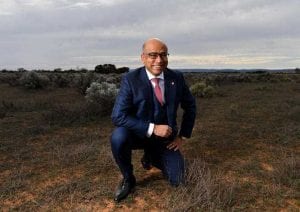Social and financial support for Australia’s fossil fuel industry continues to deteriorate amid reports of greenwashing, harmful subsidies and soured alliances in elite-level cricket.
Recent Australian floods survivors, traditional land owners and climate and social justice groups this week are ramping up calls for the federal Labor government to use the October national budget to put an end to handouts to gas companies.
As reported by RenewEconony, $3.5 billion worth of unspent public money remains earmarked for gas corporations, including $1.5 billion to expand gas export terminals and build gas fired petrochemical factories at Middle-Arm in Darwin harbour and $1.9 billion for gas projects and infrastructure identified as “uncontracted.”
GetUp CEO Larrissa Baldwin says she is concerned that subsidies for the Middle Arm petrochemical plant spearheaded by the NT government will help turn fracked gas from the Beetaloo Basin into plastic and pesticides.
“Instead of lining the pockets of big polluters, public money should fund things that matter to all of us, like publicly-owned renewable energy … and support for those already hit hard by climate change,” Australian Youth Climate Coalition national director Alex Fuller said.
Meanwhile, Cricket Australia and Alinta Energy are calling time on their much-heralded $40 million sponsorship deal, with test captain Pat Cummins reportedly fronting CA’s chief executive, Nick Hockley, with ethical objections to Alinta’s contract with the Australian team.
Alinta Energy is the operator of what will be one of the last coal generators operating on Australia’s the grid, the Loy Yang B brown coal plant in Victoria.
According to Envrionment Victoria, Loy Yang B emitted more than 10 million tonnes of carbon emissions in the 2019-2020 reporting period.
As a principal partner of the Australian Mens Cricket Team, Alinta holds branding rights across the playing shirts of all three formats of men’s international cricket in Australia – one of the most visible sponsorships in Australian sport.
Spokespersons for Alinta and Cricket Australia said the mutual decision to end the partnership in June 2023 was made earlier this year. But reports on Tuesday suggest Cummins – a vocal supporter of The Cool Down climate initiative – was not comfortable repping a fossil fuel gen-tailer. (Cummins has reportedly denied these reports.)
Meanwhile, Australia’s industry and science minister Ed Husic is said to have questioned the priorities of Australia’s premier science body, CSIRO, warning it against renting out its brand to huge gas companies that could easily fund their own decarbonisation efforts.
Husic told a conference on Monday that a “very major gas company” had approached CSIRO to support its claims of working towards net zero greenhouse gas emissions, the Guardian reports. While emphasising CSIRO’s independence, Husic said it should focus efforts elsewhere.
“Gas firms at the moment are making enough money to ensure that the mint could blush,” Husic said, according to the Guardian. “I do wonder why we need to have gas firms renting out the brand – [for] CSIRO to do decarbonisation work – that I’m sure they could get a lot of others to do.”
At the same time, some fossil fuel producers are garnering praise for their efforts to transition to clean energy.
Superannuation fund HESTA has rewarded Origin Energy’s “strategic shift” to divest its interests in the gas-rich Beetaloo Basin, as reported by RenewEconomy, and its intention to exit upstream exploration permits by removing it from a divestment watch list position.
“We believe Origin has articulated a climate strategy consistent with a 1.5oC pathway and that their change in strategic direction will better support their ambitions to lead the energy transition through cleaner energy and customer solutions,” Hesta said in a statement.
As a result, HESTA says it intends to vote in favour of Origin’s Climate Transition Action Plan during the company’s 19 October annual general meeting. The plan contains new short and medium-term targets for increased emissions reduction across Origin to help it meet its ambition to be net zero in Scope 1, 2 and 3 emissions by 2050.
Still, Hesta is urging Origin to play a more active role in supporting a “just transition” for affected communities and to consider how it can leverage its membership of industry associations to advocate for greater alignment with their climate strategy and commitment with a 1.5°C pathway.









